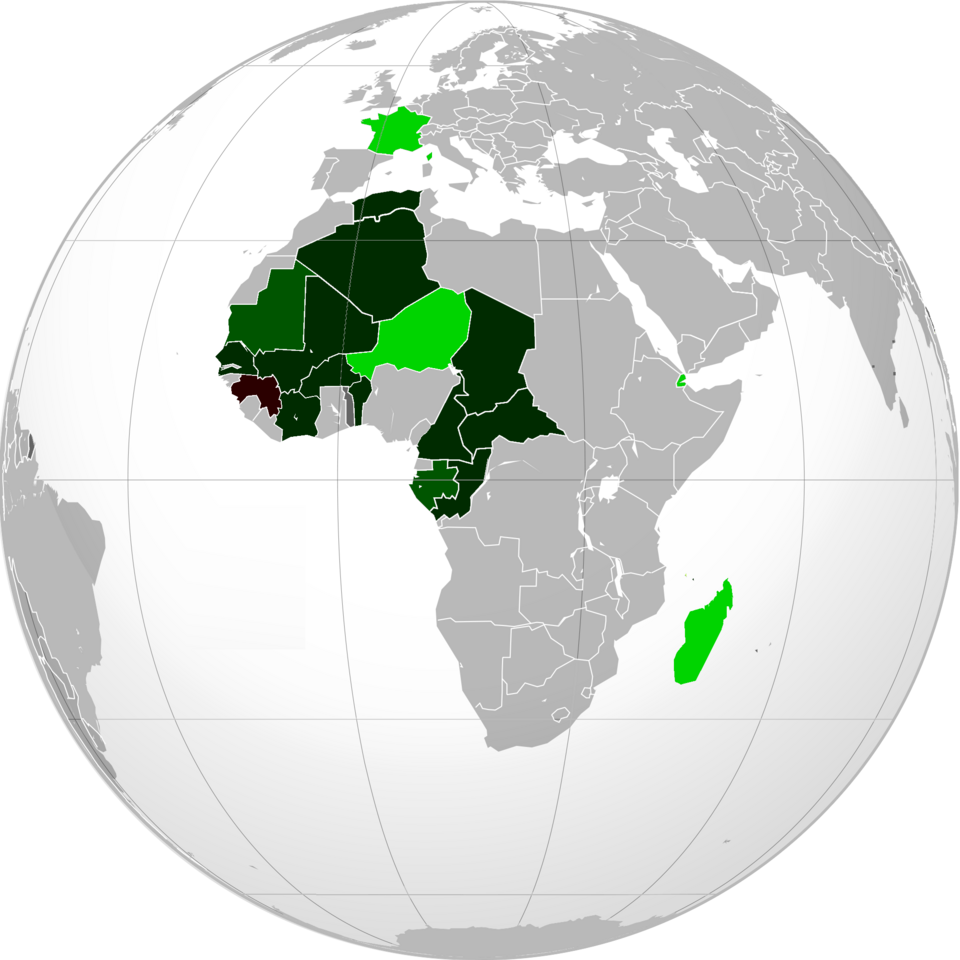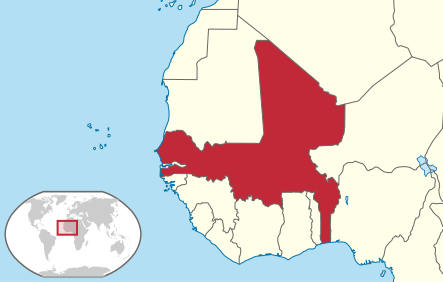IB Syllabus focus:
'Analyze the nationalist movements, political parties, and the path to independence in Senegal in 1960 within the context of French West Africa.'
Tracing the contours of Senegal’s independence reveals a compelling narrative of resistance, intellectual renaissance, and strategic political movements culminating in a break from French colonial rule in 1960.
Prelude to Nationalism
The roots of nationalism in Senegal were sown by various socio-political and economic factors under French colonial administration.
French Assimilation Policy: French cultural and political policies, paradoxically, created an educated elite that would later challenge colonial rule.
Economic Exploitation: The harsh realities of forced labour and economic subjugation underpinned the push for greater autonomy.
Cultural Renaissance: The celebration of African culture and identity began to surge, opposing the colonial narrative of African inferiority.
Intellectual and Cultural Foundations
Cultural movements and intellectual debate provided the ideological underpinnings for political action.
Négritude Movement: Pioneered by intellectuals such as Léopold Sédar Senghor, this movement celebrated African culture, heritage, and values.
Press and Literature: Newspapers and literature became vehicles for expressing nationalist sentiments and mobilising public opinion.
Emergence of Political Leaders and Parties
Several leaders and political parties arose to channel nationalist sentiments into political action.
Léopold Sédar Senghor
Background: A poet and intellectual, Senghor's influence extended beyond Senegal’s borders.
Political Strategy: He adopted a moderate approach, initially seeking autonomy within the French Union before shifting towards full independence.
Bloc Démocratique Sénégalais (BDS)
Foundation and Goals: Formed to promote the welfare of Senegalese people, it evolved to become a platform for advocating independence.
Mass Mobilisation: The BDS effectively mobilised urban workers and rural peasants, transforming social grievances into political action.
Senegal within the French Union
The post-war period saw Senegal's political landscape reshaped by the broader changes within the French Empire.
Loi Cadre Defferre (1956): Granted limited self-government to French colonies, including Senegal.
1958 French Constitutional Referendum: Led by Senghor, Senegal voted to join the French Community as an autonomous republic, setting the stage for eventual full sovereignty.

Results of the 1958 French constitutional referendum that created the Fifth Republic and the French Community; most African territories—including Senegal—voted “Yes,” while Guinea chose “No.” The broader geographic view situates Senegal’s decision within the wider French imperial framework, illustrating why 1958 was a crucial staging point toward independence. (Includes territories outside West Africa.) Source
The Mali Federation: A Union and its Dissolution
The Mali Federation represented a strategic alliance aimed at strengthening the position of its constituent territories in the face of colonial rule.
Vision and Challenges: The idea of a larger West African federation was seen as economically and politically beneficial but was fraught with challenges from the start.
Collapse: Due to internal political discord and differences in vision, the federation was short-lived, dissolving shortly before Senegal’s declaration of independence.

Locator map showing the Mali Federation (1959–1960), comprising Senegal and the Sudanese Republic (Mali). The union’s geography illustrates the political ambition behind a broader West African federation and the logistical challenges it faced. Source
Political Parties' Contributions to Independence
Various political entities contributed to the shaping of Senegal’s road to independence.
African Socialist Party (PSA): Advocated for immediate independence and had a significant peasant and trade union following.
Senegalese Popular Bloc (BPS): A radical offshoot, it pressed for a complete and immediate break from France.
The Path to Independence
The movement towards independence was marked by significant milestones and strategic negotiations.
Internal Autonomy (1958-1960): The period was marked by internal self-governance, setting up a national assembly and the establishment of a prime ministerial role.
Independence Declared (April 1960): Negotiations with France concluded, and Senegal declared its independence, with Senghor as President and Mamadou Dia as Prime Minister.
Economic Foundations and Challenges
Senegal’s economic landscape in the lead-up to and after independence was both complex and challenging.
Agricultural Economy: The groundnut economy, pivotal for the country, was largely controlled by French interests.
Infrastructure and Development: Infrastructure was largely coastal and benefited export-oriented trade, necessitating broad-based development post-independence.
Post-Independence Political Landscape
After independence, Senegal embarked on a journey of nation-building and consolidation of its political systems.
Single-party System: Initially, Senghor’s BDS, which became the Socialist Party, dominated the political landscape.
Political Stability: Senghor’s policy of African socialism and political moderation contributed to relative stability in the volatile post-independence period.
Education and Development Post-Independence
Education was seen as a crucial instrument for nation-building and development in post-colonial Senegal.
Expansion of Education: Investment in education aimed to reduce illiteracy and develop a skilled workforce.
Focus on African Identity: Education policy included a strong emphasis on African history and culture, seeking to foster a sense of national identity.
Cultural Identity and Nationhood
The role of culture in consolidating national identity was paramount in the newly independent state.
Cultural Policy: The government promoted cultural festivals and institutions to foster a sense of nationhood.
Role of Language: French remained the official language, but national languages were promoted in education and the media to strengthen cultural identity.
In summary, Senegal’s independence was achieved through a combination of intellectual, cultural, and political forces, spearheaded by key figures like Léopold Sédar Senghor. The interplay of political parties and the strategic negotiation with colonial powers defined the Senegalese experience of decolonisation, setting a distinctive course for its post-independence trajectory. The nation’s history serves as a valuable case study in the complexities and challenges of achieving and maintaining sovereignty in the wake of colonial rule.
FAQ
Women played a vital, yet often understated, role in Senegal's nationalist movement. They participated in political rallies and were active members of political parties, such as the Union Progressiste Sénégalaise (UPS), where they worked alongside men in campaigning for independence. Women also provided essential support through organising demonstrations, mobilising communities, and sustaining the morale of the movement. Their involvement in the nationalist struggle was an important facet of the broader social change that independence movements entailed, challenging traditional gender roles and advocating for broader social reforms.
World War II was a catalyst for nationalist sentiments in Senegal as many Senegalese served in the French army and were exposed to ideas of liberty, equality, and fraternity, which contrasted starkly with their colonial experiences. The war's end brought an economic crisis and social changes, leading to greater political consciousness among the African soldiers who had fought for France. They sought to have the rights they were fighting for applied at home. This exposure laid the groundwork for a stronger demand for political rights and self-determination, fuelled by the broader anti-colonial sentiment that followed the war.
After independence, Senegal undertook significant educational reforms to decolonise and nationalise its education system. These changes aimed to reduce the reliance on the French educational model and to incorporate African values, culture, and languages into the curriculum. There was a concerted effort to increase accessibility to education at all levels, from primary to tertiary, and to expand literacy programs. The government focused on forming an education system that could produce a workforce to meet the needs of an independent nation and to foster a sense of national identity among the citizens of the newly formed country.
The Loi Cadre Defferre was a pivotal piece of legislation passed by the French National Assembly that significantly altered the political landscape of French West Africa, including Senegal. It set the stage for the devolution of powers to the colonies, enabling them to govern themselves in all areas except defence, foreign policy, and finance, which remained under French control. For Senegal, this law was crucial as it facilitated the creation of a territorial assembly and executive, leading to the formation of a government that could pursue internal autonomy, a crucial step towards full independence.
Senegal's experience of colonialism, marked by the policy of 'assimilation' and a direct rule by the French, led to the creation of a unique political class that advocated for independence through gradual reform rather than outright revolution. The assimilation policy, which aimed to make Senegalese people citizens of France with full rights, paradoxically created an educated elite aware of global movements for independence and capable of utilising democratic institutions to push for change. This background facilitated a relatively peaceful transition to independence compared to other African nations where direct confrontations were more common.
Practice Questions
Léopold Sédar Senghor was instrumental in Senegal's nationalist movement. As an intellectual pioneer of the négritude movement, he fostered a sense of African identity and unity. Politically, his approach was one of gradual autonomy, leading the Bloc Démocratique Sénégalais (BDS) with a strategy of negotiation and moderation. His influence was significant in the 1958 referendum where Senegal chose to become an autonomous republic within the French Community. Ultimately, Senghor's blend of cultural advocacy and political pragmatism significantly propelled Senegal towards the peaceful achievement of independence.
The Mali Federation, albeit short-lived, had a substantial impact on decolonisation in Senegal. It symbolised a strategic effort towards a united front against colonial rule, which theoretically strengthened the bargaining power of both Senegal and the Sudanese Republic. The federation's disintegration, however, highlighted the political complexities of regional unity. Nevertheless, it served as a stepping stone for Senegal's path to independence, showing that federalism was a viable, albeit challenging, route to self-rule. The experience gleaned from the federation undoubtedly informed Senegal's subsequent strategies in securing sovereignty in 1960.

